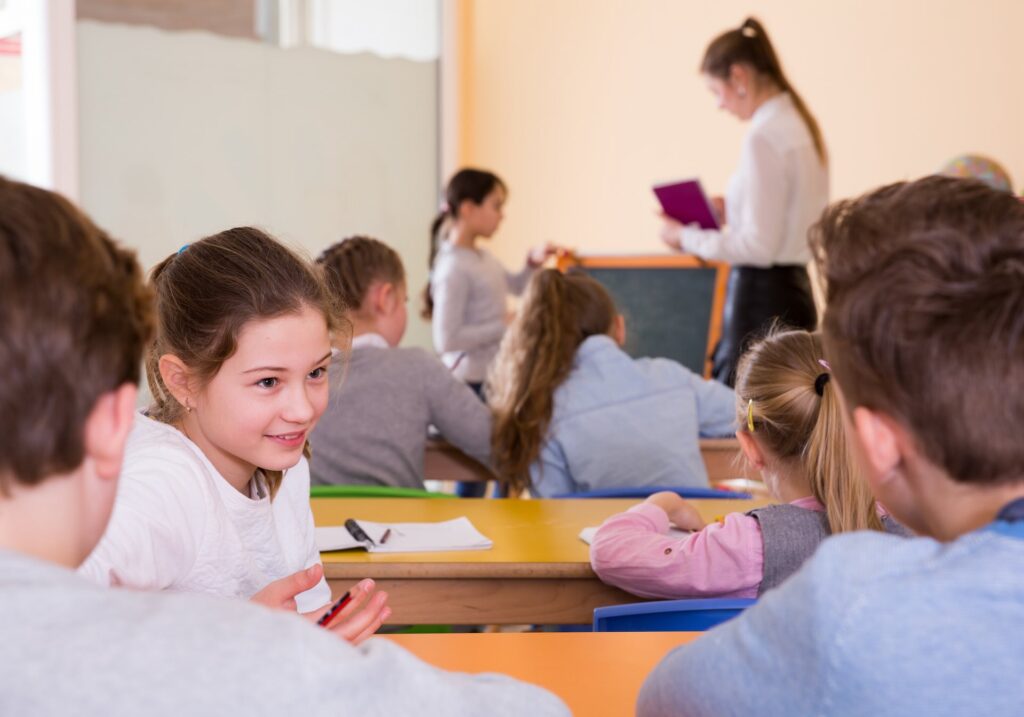Every student will struggle to pay attention in class at one point or another. Attention struggles can be caused by disruptive classmates, a subject they are not interested in, or a non-stimulating instruction style.
But when students struggle to pay attention in class, parents can wonder if their child could have a learning difficulty such as ADHD.
It’s important to keep in mind that not every student who struggles with attention has ADHD. In fact, there are many reasons that students might struggle with paying attention.
Signs Of Concentration Struggles
Common signs that your child is having trouble concentrating in the classroom include:
- Low grades
- A dislike of school
- Disruptive behavior in class
These signs don’t automatically mean your child has a learning difficulty. Before you start looking for solutions, the first step is to identify the reasons your child is having trouble focusing in school.
9 Reasons Your Child Is Having Trouble Paying Attention In School
- Lack of practice. Many young children have a hard time focusing in the classroom simply because they are in a new environment. This can also happen to older children after a break from school, such as March break or summer holidays.
- Doesn’t understand the material. What might look like a lack of concentration could actually be a lack of understanding of the material. This lack of understanding can lead students to stop paying attention and consequently fall further behind.
- Need to be challenged more. The subject material in class may need to be more challenging for some children. Children needing high-level challenges in school can lose interest in the material and stop paying attention.
- Distracted by external stimuli. The classroom can be a place full of distractions, from chatty classmates to a cluttered workstation. Some children have a harder time than others filtering out these distractions, making paying attention to the teacher more challenging.
- Lack of motivation. In some cases, your child’s concentration problem may actually be a motivation problem. This lack of motivation can lead to a number of issues in the classroom—including disinterest in the material.
- Mismatched learning style. Different students have different learning styles: some learn best by seeing, some by hearing, and others by doing.
- Lacking proper sleep or nutrition. If your child is not getting the recommended 8-10 hours of sleep each night, they won’t have the energy needed to concentrate in class.
- Disorganization Problems. A disorganized notebook or workspace can distract students. Students who are disorganized in class spend time searching for supplies and materials rather than paying attention to the teacher and the lesson.
- School Anxiety. Students who are overwhelmed by a subject may simply check out, leading to dropping grades and confidence.
Solutions for Success
If your child is having severe problems in the classroom, such as constant disruptions, distractions, or poor grades, and you have ruled out the other items on this list, it could be time to look into possible learning difficulties.
In some cases, these children may have learning difficulties such as ADD, ADHD, or Dyslexia. They may also have auditory issues such as CAPD (Central Auditory Discrimination Disorder). Each of these can be addressed with the help of a tutor and learning plan so your child can improve their focus and succeed in the classroom.
Once you know what’s causing your child’s focus issues, you’re ready to start making a plan to overcome it. For a personalized learning plan to help your child succeed, contact a local GradePower Learning location today.
Discover more about learning disabilities and tutoring here.





